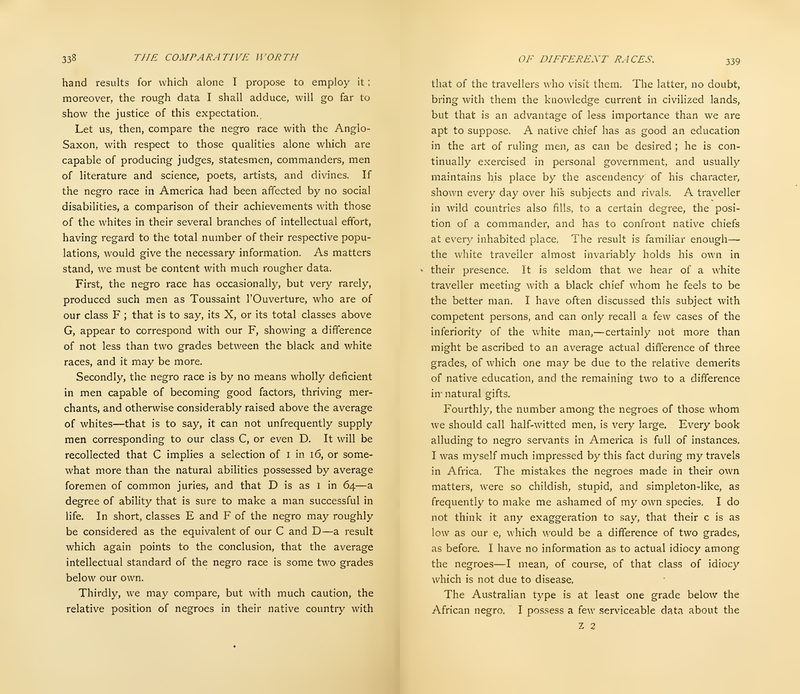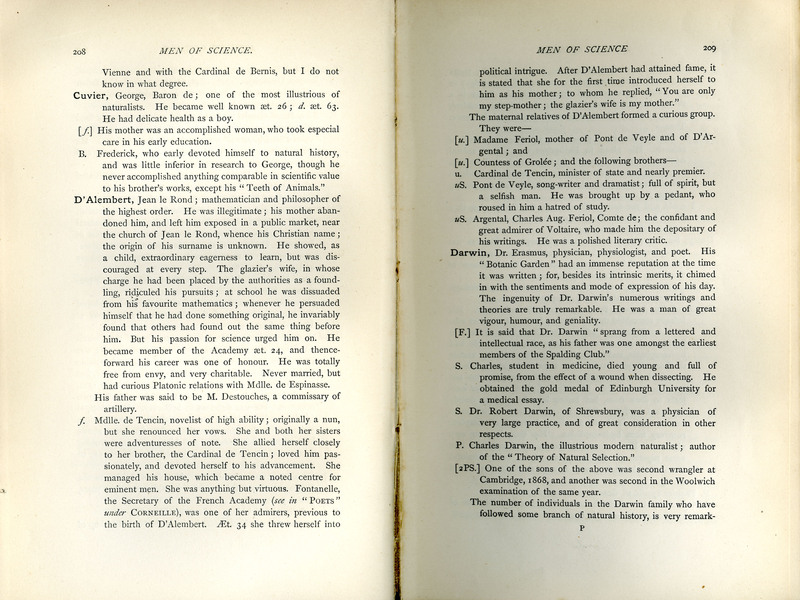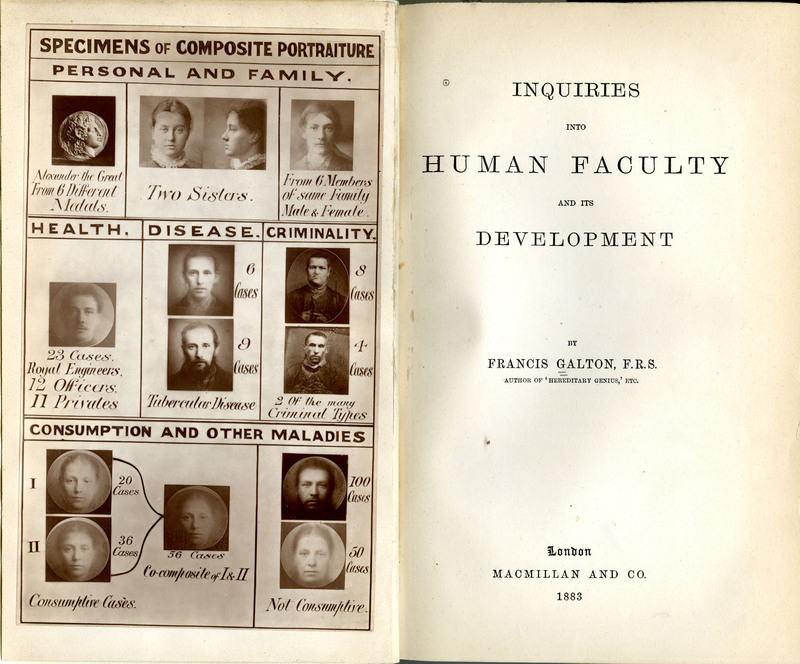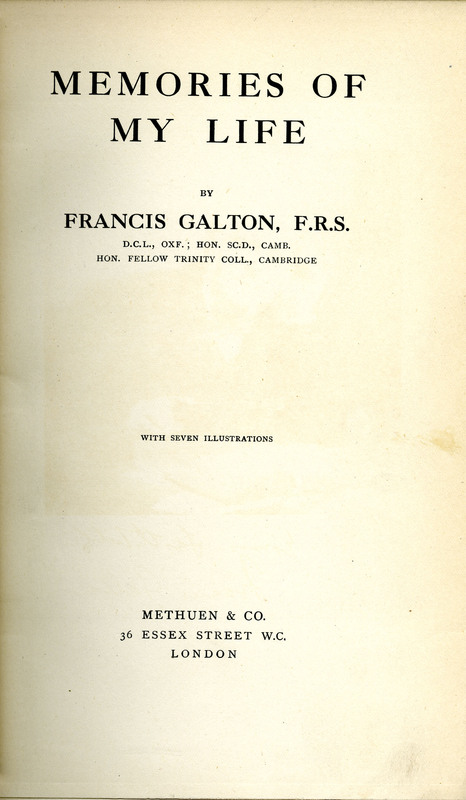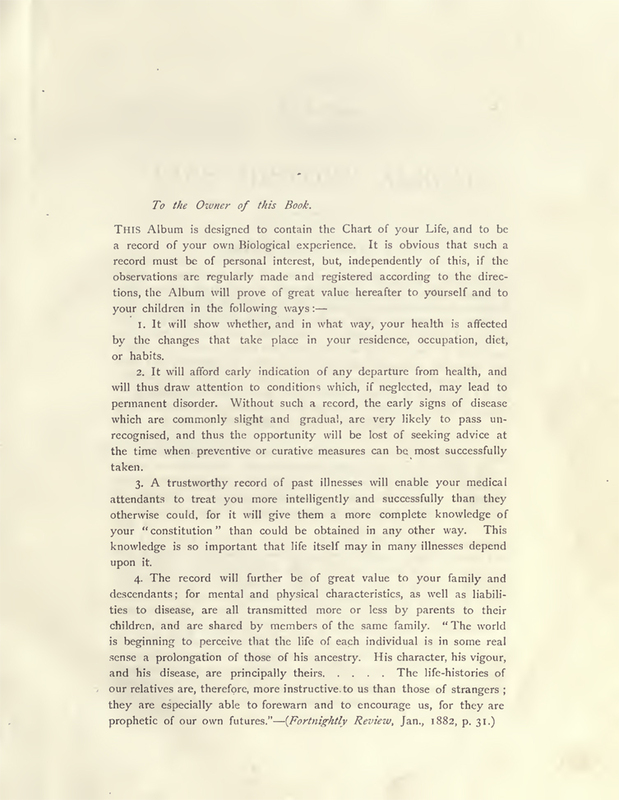Galton's Work
Francis Galton, influenced by the work of Charles Darwin and following research into the biographies and genealogies of 400 famous judges, statesmen, poets, painters, scientists and athletes, came to believe that genius was hereditary. In this excerpt from Hereditary genius, Galton speculates about the comparative worth and abilities of different races and nations: “A native chief has as good an education in the art of ruling men, as can be desired; he is continually exercised in personal government, and usually maintains his place by the ascendancy of his character…. A traveller in wild countries also fills, to a certain degree, the position of a commander, and has to confront native chiefs at every inhabited place. The result is familiar enough—the white traveller almost invariably holds his own in their presence. It is seldom that we hear of a white traveller meeting with a black chief whom he feels to be the better man.”
In another excerpt from Hereditary Genius, Francis Galton lists "Men of Science," including his cousin and inspiration Charles Darwin.
Galton’s influential study of the subject proved to be a cornerstone in the beginnings of the eugenics movement.
Inquiries into Human Faculty and its Development assembles and revises his writings since the publication of Hereditary genius. In the notes to the introduction of this work, Galton coins the neologism which gave its name to a movement: “That is, with questions bearing on what is termed in Greek, eugenes, namely, good in stock, hereditarily endowed with noble qualities. This, and the allied words, eugeneia, etc., are equally applicable to men, brutes, and plants. We greatly want a brief word to express the science of improving stock, which is by no means confined to questions of judicious mating, but which, especially in the case of man, takes cognisance of all influences that tend in however remote a degree to give to the more suitable races or strains of blood a better chance of prevailing speedily over the less suitable than they otherwise would have had. The word eugenics would sufficiently express the idea.”
At the conclusion of this autobiographical account Memories of my Life, Galton considers the goal of his work on eugenics and its contrast to Darwinian natural selection: “Man is gifted with pity and other kindly feelings; he has also the power of preventing many kinds of suffering. I conceive it to fall well within his province to replace Natural Selection by other processes that are more merciful and not less effective. This is precisely the aim of Eugenics. Its first object it to check the birth-rate of the Unfit, instead of allowing them to come into being, though doomed in large numbers to perish prematurely. The second object is the improvement of the race by furthering the productivity of the Fit by early marriages and healthful rearing of their children. Natural Selection rests upon excessive production and wholesale destruction; Eugenics on bringing no more individuals into the world than can be properly cared for, and those only of the best stock.”
Intended to chart the medical history of an individual from birth until the age of 75, the Life history album, edited by Francis Galton, allows for notes on the genealogy, life, development, marriage, children, height and weight observations, anthropometric information, and photographs in five-year increments. “A trustworthy record of past illnesses will enable your medical attendants to treat you more intelligently and successfully than they otherwise could, for it will give them a more complete knowledge of your ‘constitution’ than could be obtained in any other way…. The record will further be of great value to your family and descendants; for mental and physical characteristics, as well as liabilities to disease, are all transmitted more or less by parents to their children, and are shared by members of the same family.” Galton, at 80, was dissatisfied with this production and rewrote and republished the Album in 1902, extending its duration to the age of 100. This copy of the Life history album was given by his grandmother to George Kimball Clement (1888-1951) soon after his birth; Clement was a member of the Class of 1912 of Harvard College.

